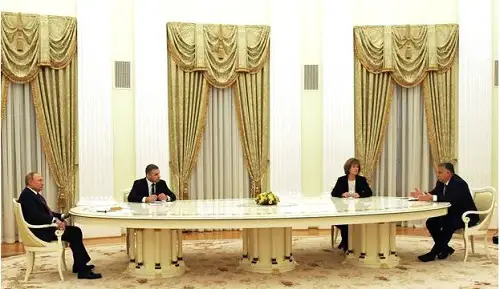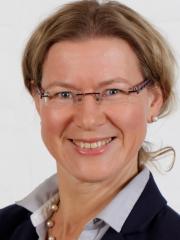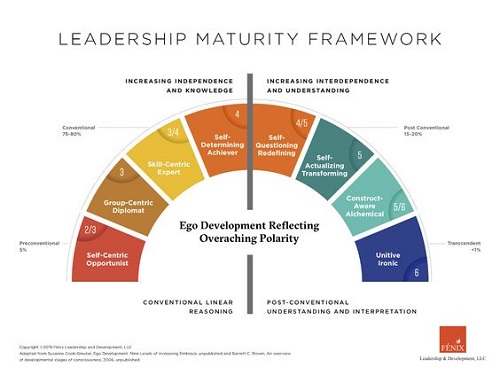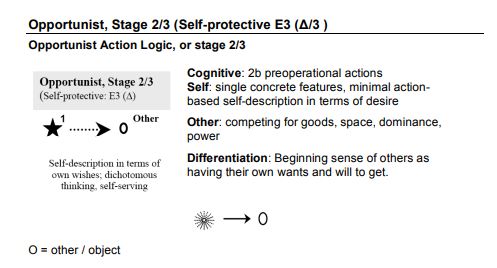|
TRANSLATE THIS ARTICLE
Integral World: Exploring Theories of Everything
An independent forum for a critical discussion of the integral philosophy of Ken Wilber
  Frank Visser, graduated as a psychologist of culture and religion, founded IntegralWorld in 1997. He worked as production manager for various publishing houses and as service manager for various internet companies and lives in Amsterdam. Books: Ken Wilber: Thought as Passion (SUNY, 2003), and The Corona Conspiracy: Combatting Disinformation about the Coronavirus (Kindle, 2020). Frank Visser, graduated as a psychologist of culture and religion, founded IntegralWorld in 1997. He worked as production manager for various publishing houses and as service manager for various internet companies and lives in Amsterdam. Books: Ken Wilber: Thought as Passion (SUNY, 2003), and The Corona Conspiracy: Combatting Disinformation about the Coronavirus (Kindle, 2020). Part 6 | Part 7 | Part 8 | Part 9 | Part 10 
'First Thing: US is ignoring Russia's security concerns, says Putin' (The Guardian).
Putin's politics viewed through an integral lensA Perspective from the Field of Adult DevelopmentFrank VisserAbstract by ChatGPT. Frank Visser's article examines Putin's leadership through an integral lens, focusing on the Ukraine crisis. It critiques the Western perspective of Putin as the sole aggressor. Elke Fein, a political scientist, emphasizes understanding Putin's true nature. Her research categorizes Putin's leadership as self-protective and opportunistic, driven by insecurity. Fein suggests that the West's misinterpretation of Putin's motives has unintentionally strengthened NATO and united Europe. She recommends recognizing Putin's leadership style, setting clear expectations, and applying "friendly pressure" to promote peace.
Putin's repeated emphasis on security concerns as the cause for the Ukraine war betrays his strong preoccupation with security issues.
Since Russia invaded Ukraine on 24 February 2022, several essays have appeared on Integral World to make sense of this dire situation. Joseph Dillard has argued extensively that the Western media and politicians suffer from severe group-think in that they see Putin as the aggressor and Ukraine as the innocent victim.[1] In his analysis, things are not that black and white, given the history of this conflicht between Russia and Ukraine, which touches on aspects of geopolitics, culture and history. I have responded to these essays with some thoughts of my own, trying to counterbalance this contrarian view—if only to keep this website multi-perspectival.[2]  Elke Fein Researching this complicated topic further, I discovered the writings of political and social scientist Elke Fein, who has been intensively involved with Russia for 25 years and did her doctorate on the political sociology of the Russian transformation process in the early 1990s. Since 2000 she has combined transformation research with adult development research and since 2012 with the topic of leadership. She is co-founder and managing director of the Institute for Integral Studies in Freiburg, Germany. She has co-authored academic publications on the developmental aspects of Putin's leadership style (in 2016 and 217), and has shared her views in online seminars and interviews when the war started.[3] Fein argues that integral politics brings the inner dimension to politics, in the sense that we need to deal with Putin as he is and not as we would like him to be, and that he has a point, valid within his own worldview, even if that is quite limited in maturity. Putin as Political LeaderTwo academic articles were published in the online journal Behavioral Development Bulletin, published since 2015, by the American Psychological Association (APA). For the 2016 and 2017 special issues "Adult Development Meets Social and Behavioral Science" Fein was a co-guest editor, together with Michael Lamport Commons. In the paper "Vladimir Putin as a political leader: Challenges to an adult developmentally-informed analysis of politics and political culture" a adult-developmental approach to politics and political culture is presented (though as the title suggests, there are "challenges" to such an approach). Indeed, Putin cannot be studied directly, but the next best thing would be to analyze "public policy materials, interviews, public discourse, as well as biographical accounts." On this basis, we will describe the general "leadership profile" of the Russian president, covering a range of action logics, as well as a center of gravity that appears to be a key for understanding most of his leadership behavior. The following dimensions have been analysed: "(a) political action and decisions taken during the last 15 years in office (either as president or prime minister)—these are well documented in the literature and general media; (b) public statements in speeches, interviews and other published ego documents, mostly available online and sometimes also in edited data collections; and (c) biographical accounts and comments by close observers of Putin's leadership (collaborators, journalists or consultants, etc.)."  Based on various developmental models (Kegan, Loevinger, Cook-Greuter, Kohlberg, Commons, Laloux, Torbert) but with special emphasis on Cook-Greuter's Leadership Maturity Framework the authors conclude that Putin's center of gravity is at the—quite low!—preconventional, self-protective or self-centric, opportunist stage of development, though there were both lower and higher scores:
Wagner, A., & Fein, E. (2016). Vladimir Putin as a political leader.
Putin's repeated emphasis on security concerns as the cause for the Ukraine war betrays his strong preoccupation with security issues. Mark the specific descriptions of this opportunist, self-protective stage: "competing for goods, space, dominance, power. Beginning sense of others as having their own wants and will to get." A perfect description of an imperialistic dictator—with a psychological age of less than 10 years.  As an aside note, quoting a statement on judo from the Kremlin website ("Judo teaches self-control, the ability to feel the moment, to see the opponent's strengths and weaknesses, to strive for the best results. I am sure you will agree that these are essential abilities and skills for any politician"), the authors conclude that "While this may or may not be an accurate account or interpretation of the philosophy of judo, we argue that these elements (some of which are only partly explicit in the above quote) do characterize Putin's actual leadership style." In Dillard''s last essay on Putin the topic of judo features prominently as well, but where he links this to Eastern philosophy and a supposedly high level of development, Fein decides differently. [W]e argue that the attitude which, for convenience, we call "judo worldview" here (and which has certainly been amplified by years of socialization inside Soviet KGB schools) is an important key to understanding Putin's leadership behavior in every domain of his political activity. In a nutshell, it perceives political life as an existential competition between "us" and "them" (political or ideological opponents), where the latter have to be beaten with all available means and techniques (including illegal ones), quite similar to what was taught by the Soviet political rationale. More importantly, the authors highlight Putin's striking lack of comprehension with regard to what Eastern European countries had to endure during the Soviet era, "or his statements that the Ukraine was 'not a real state' and that Russia had a 'vital interest' to protect all Russian speaking populations on former Soviet territories, justifying the annexation of the Crimea and semi-hidden military action in southeastern Ukraine." So at the center of his political reasoning as described in the data we find a rather weak, insecure self, lacking confidence, which is driven by "panic fear" of losing ground in a potentially hostile environment. Possibly, we are also dealing with an early (not yet stable) conformist action logic (see below) regressing to self-protection in the face of overwhelming experiences or even trauma. Understandably, this has wide-ranging implications in all dimensions of political leadership. The paper is rich in biographical detail so I would urge you to read it for yourself. In a follow-up paper the authors analyze how this leadership style has worked out in domestic and international politics. Again, a rich source of information, leading to the same conclusion: Although Putin's behavior might indeed seem confusing and often contradictory from expert, achiever, or pluralist perspectives (presumably the most widespread action logics in Western politics), which are used to (co)operate on more factual rather than personalized or even force-based terms, self-protective behaviors make perfect sense in themselves. Therefore, we argue that Western leaders should start to take the self-protective operating system of Putin's leadership seriously—and to take it into account in their own policy-making. 'Taming the Russian Bear'In a recent online colloquium Elke Fein returned to these topics due to the Russia-Ukraine crisis. Whereas these two academic papers were written after the annexation of the Crimea, she states that the current situation is "not surprising from an integral perspective even if the degree of escalation appears to be a lot greater" because "it follows the exact same pattern of logic and behavior." And the West still doesn't know how to respond adequately. But a developmentally informed approach could at least hear the concerns of all parties, and address them. This video is a shortened version of the presentation given by Dr. Elke Fein at the IFIS Online Colloquium N° 48 on Wednesday, February 23, 2022.
Taming the Russian Bear: Integral Politics and Non-Democratic Leaders
Key points from this mini-presentation:
Two main motives show up in Putin's justification of the war: security concerns and the threat posed by "Neo-Nazis" supposedly prominent in the Ukrainian society, but behind this is a desire "to make Russia great again", to borrow a phrase from a former fan/friend of Putin, Donald Trump. And in this vision of history, Russian can never be "great again" if it doesn't "include" Ukraine (and Belarus) as the core of an Eurasian empire. So the threat of losing Ukraine to the West is unforgivable to Putin's mind. And he also doesn't have any idea why countries would want this in the first place, since his own system of government (all present under one commanding dictator, sanctioned by the Orthodox Church), is superior to Western "decadence". Elke Fein also responds to Putin's speech of February 24, in which he gives "a revisionist perspective of Russian and Ukrainian history." She comments that the collapse of the former Soviet Union has not been integrated "as a fact of history by the Russian president". NATO expansion is seen as a threat, but even more so are the "color revolutions" a threat to the Russian system of government—and a personal threat to Putin. She speaks of "an almost paranoid sense of weakness, of being the underdog, based on the assumption of external danger." Putin demands respect, and if he does not get it, he will enforce it through fear, Fein summarizes the problem. In conclusion: if the West has misunderstood Putin's concerns and dreams, he himself has failed to anticipate the effect of his decision to invade Ukraine. Foremost is the strong resistance he has encountered. No flowers along the road for the Russian "liberators." Instead, he met with a people willing to fight itself to death for their own culture and identity. "Merely demanding respect he is frightening everyone, he is mistaking fear for respect." In the end "Putin achieves the exact opposite of what he claims his strategic goals to be." As to the claim that Putin might have a smart hidden agenda behind his actions, Fein doesn't buy any of that. In fact, she details that Putin's strategy has not been very smart at all:
To which we can also add:
The West has left behind this logic of geopolitics, of force and coercion, Fein continues, and replaced it with "more complex forms of cooperation, value-based politics, joint principles and so on, at least 4 or 5 levels above the level that is displayed in Putin's behavior." If this analysis is correct the best that we can expect as an incremental change in self-protective behavior is certainly not Western pluralist behavior, but a shift toward the next level which is conformist interpersonal. As I said we see that occasionally in his profile, but it's not the dominant logic that we see in action there and therefore it can rather be interpreted as a growth edge or developmental goal.
Putin might just not be a "mean person", just someone with a limited capacity of perspective taking, yet in a powerful position. Elke Fein
She ends the presentation with suggestions (taken from her second academic paper) about how the West can stimulate this development on Putin's part, by on the one hand paying him the respect he needs but on the other hand setting clear boundaries. In her opinion, the West should:
I think, with all its methodological caveats, this is a very valuable addition to understand the current world conflict and allow us to envision next steps to peace. NOTES[1] Joseph Dillard, "Is Putin Red and the West Green?", "The Ukraine Crisis: An Opportunity to Wake Up Out of Groupthink" and "Why are Russia and Putin Winning the Economic and Military Wars?", www.integralworld.net, March-April 2022. [2] Frank Visser, "Hubris and Hypocrisy Are Present On Both Sides", "Putin's Dark Ideology of a Sacred Greater Russia" and "'Putin has a Point and the West is to Blame'", www.integralworld.net, March-April 2022. [3] Academic co-publications by Elke Fein:
Online colloquium by Elke Fein:
Interviews/publications with Elke Fein in the German language:
Comment Form is loading comments...
|